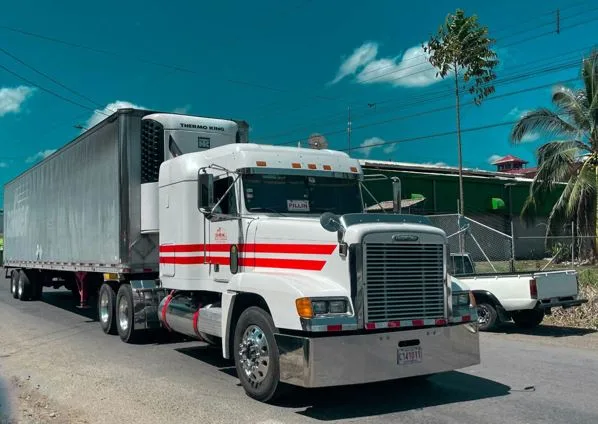How do I manage expenses with a fleet fuel card?
A fleet fuel card transforms how businesses track and control vehicle fuel expenses by providing automated expense management, real-time monitoring, and significant cost savings through negotiated discounts. Companies using a fleet fuel card typically reduce fuel costs by 15-20% while eliminating manual expense reports and reimbursement headaches. These specialized payment cards give fleet managers unprecedented control over fuel purchases, allowing them to set spending limits, restrict purchase types, and monitor driver behavior across their entire vehicle fleet.
Understanding Fleet Fuel Cards and Their Business Impact
Fleet fuel cards function as specialized payment instruments designed exclusively for business vehicle operations, offering far more control than traditional credit cards or cash payments. These cards integrate directly with fuel station networks, capturing detailed transaction data including gallons purchased, price per gallon, location, time, and odometer readings. This automated data capture eliminates the need for paper receipts and manual expense tracking while providing fleet managers with comprehensive insights into fuel consumption patterns.
The implementation of fleet cards creates immediate operational improvements across multiple business functions. Accounting departments benefit from streamlined expense reconciliation, while operations teams gain visibility into vehicle efficiency and driver behavior. Most importantly, businesses achieve measurable cost reductions through volume discounts, rebate programs, and the elimination of unauthorized purchases that commonly occur with traditional payment methods.
Maximizing Savings Through Fleet Fuel Card Programs
Strategic use of fuel cards delivers savings through multiple channels beyond simple per-gallon discounts. Leading providers like Shell and other major networks offer tiered rebate structures that increase with volume, potentially saving businesses thousands of dollars monthly. These programs typically combine immediate pump discounts with quarterly rebates based on total gallons purchased, creating compounding savings opportunities for high-volume fleet operations.
Cost control extends beyond fuel purchases through sophisticated spending limits and purchase restrictions. Fleet managers can establish daily, weekly, or monthly spending caps for individual drivers or vehicles, preventing budget overruns before they occur. Advanced card programs also allow restrictions on non-fuel purchases, time-of-day limitations, and geographic boundaries, ensuring every transaction aligns with company policy and operational requirements.
Essential Tracking and Reporting Features
Modern fleet fuel card systems provide comprehensive tracking capabilities that transform raw transaction data into actionable business intelligence. Real-time reporting dashboards display fuel consumption trends, identify inefficient vehicles or routes, and flag unusual spending patterns that might indicate fraud or misuse. This immediate visibility enables proactive management decisions that optimize fleet performance and reduce overall operating costs.
Automated expense tracking eliminates the administrative burden of manual receipt collection and data entry. Every fuel card transaction automatically flows into centralized reporting systems, creating detailed expense records for accounting, tax preparation, and budget analysis. Integration capabilities with existing fleet management software further enhance these benefits by combining fuel data with maintenance records, GPS tracking, and driver performance metrics.
Implementing Security and Control Measures
Security features built into fleet fuel cards protect businesses from fraud and unauthorized use more effectively than traditional payment methods. Each card requires a unique driver PIN for activation, creating an audit trail that links every purchase to a specific individual. Real-time transaction alerts notify managers of suspicious activity, such as purchases outside normal hours or locations, enabling immediate intervention when irregularities occur.
Purchase control parameters extend beyond simple spending limits to include product restrictions, merchant categories, and transaction frequency controls. Fleet managers can configure cards to accept only fuel purchases, or expand authorization to include vehicle maintenance, repairs, and other fleet-related expenses. This granular control ensures compliance with company policies while maintaining the convenience and efficiency that drivers need for smooth operations.
Optimizing Fleet Operations and Efficiency
Fleet fuel cards contribute to operational efficiency by simplifying the refueling process for drivers while providing managers with tools to optimize routing and vehicle utilization. Access to extensive fueling networks ensures drivers can refuel at convenient locations without deviating from optimal routes, reducing downtime and improving delivery schedules. The elimination of reimbursement processes also means drivers no longer need to use personal funds for business expenses, improving employee satisfaction and reducing administrative overhead.
Data analytics derived from fuel card transactions reveal opportunities for efficiency improvements across fleet operations. Monitoring fuel consumption patterns helps identify vehicles requiring maintenance, drivers who could benefit from efficiency training, or routes that consume excessive fuel. This intelligence enables targeted interventions that reduce fuel waste and extend vehicle life cycles, multiplying the return on investment from fleet card programs.
Strategic Budgeting and Expense Management
Effective budgeting becomes significantly easier when fleet fuel expenses flow through a centralized card program. Predictable reporting cycles and standardized data formats simplify budget forecasting and variance analysis. Finance teams can quickly identify spending trends, seasonal patterns, and cost anomalies that require investigation or policy adjustment.
The convenience of consolidated billing streamlines accounts payable processes while improving cash flow management. Instead of processing hundreds of individual receipts and reimbursement requests, businesses receive single, detailed statements that clearly categorize all fleet-related expenses. This consolidation reduces processing costs, minimizes errors, and accelerates month-end closing procedures.
Network Access and Service Integration
The value of a fleet fuel card largely depends on network coverage and acceptance locations. Premium card programs provide access to thousands of fueling stations nationwide, ensuring drivers can refuel wherever business takes them. Open-loop cards accepted at multiple brand stations offer maximum flexibility, while closed-loop cards with specific networks like Shell may provide deeper discounts for businesses with predictable routes.
Integration capabilities determine how well fleet cards complement existing business systems and processes. Modern fuel card platforms offer API connections, data export options, and compatibility with popular fleet management, accounting, and ERP systems. This integration eliminates duplicate data entry, ensures information consistency across platforms, and enables sophisticated analytics that combine fuel data with other operational metrics.
Successful fleet fuel card implementation requires careful consideration of business needs, driver requirements, and administrative capabilities. Companies should evaluate multiple providers, comparing not just fuel discounts but also network coverage, reporting features, integration options, and customer support quality. The right fleet card program becomes a strategic asset that delivers measurable savings, operational improvements, and competitive advantages in today’s challenging business environment.




